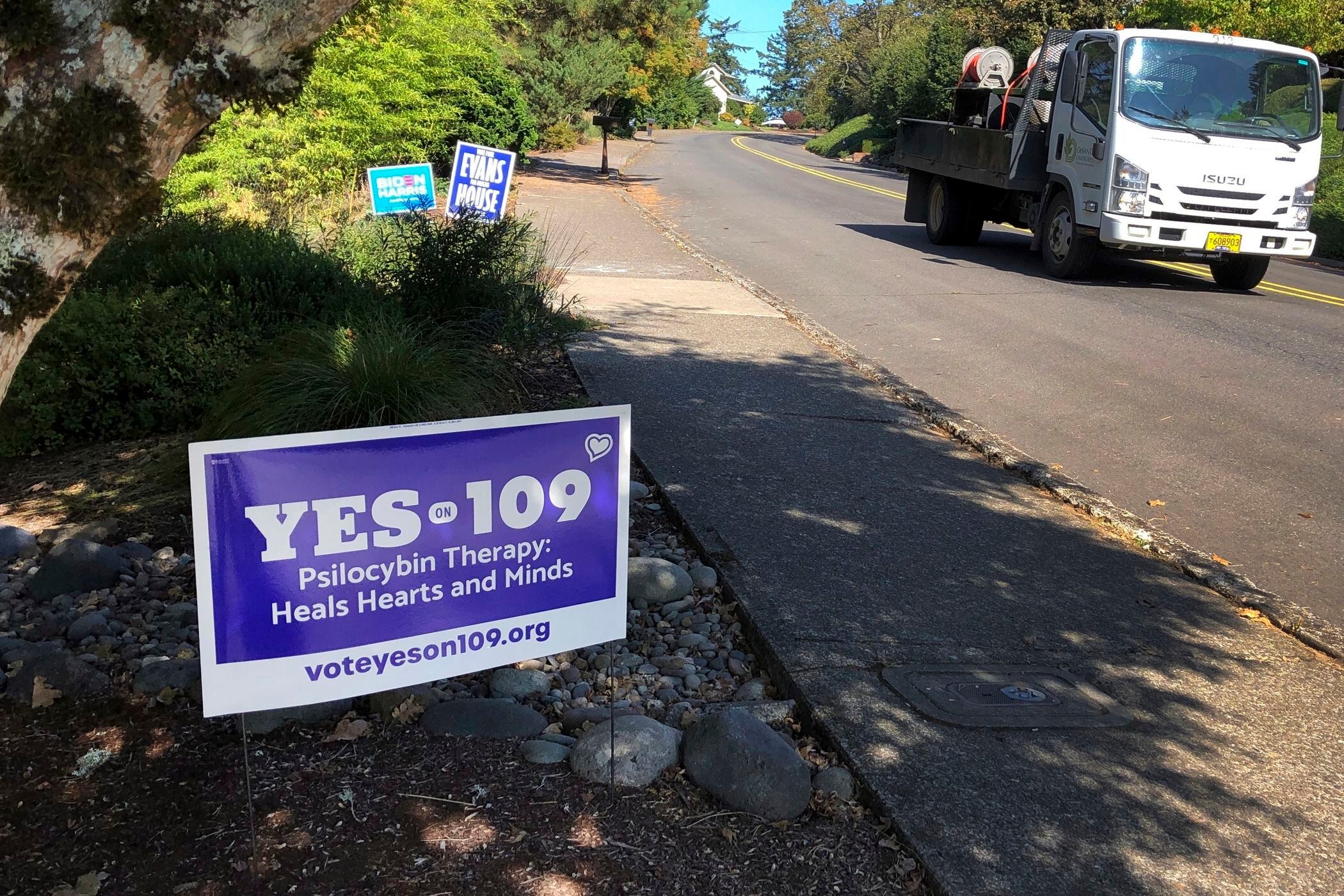On Election Day, Oregon became the first state in the U.S. to legalize psilocybin, the hallucinogenic compound found in the drug much more commonly known as "magic mushrooms." But unlike the take-home dispensary model that has emerged around legalized marijuana in the last decade, the drug will only be available in qualified therapeutic settings with the oversight of a professional.
The ballot measure, which passed with 55.7 percent of the vote, permits licensed service providers to administer psilocybin-producing mushrooms or fungi for mental health purposes to individuals 21 years of age or older. However, these providers do not need to have a medical background or be otherwise credentialed to get certified. In other words, anyone could become a psilocybin therapist if they pass the state’s training requirements.
For the emerging psychedelics industry, which is already taking root across the border in Canada, this is a somewhat controversial detail.
Dr. Erica Zelfand, a family physician and champion of the ballot measure who has a background in natural and holistic medicine, said the opportunity for non-medical practitioners to participate in the psilocybin program is "interesting, exhilarating, and unusual." During our interview, she even excused herself for referring to psilocybin as medicine.
"We need to remember that psilocybin is an ancient medicine used throughout history on many different continents and in many different settings ultimately for physical and spiritual healing purposes," Zelfand said. "This isn't a new pharmacological drug with unknown side effects that was made in a lab that needs rigorous new testing."
Some are not as excited about the prospect of a less medical approach to psilocybin legalization. COMPASS Pathways, a UK-based biotech startup invested in psychedelic therapies as a solution to clinical depression, expressed reservations about Oregon's model.
"We share the same goals as those involved in legalization efforts, i.e. to help patients with mental health challenges who are not helped by existing treatments," wrote Tracy Cheung, chief communications officer for COMPASS, in an email. "However, we believe the medical regulatory route is the best way to ensure the safety, efficacy, and quality of any medicine or therapy."
Rethinking 'Drugs of Abuse'
The idea that psilocybin could potentially serve a clinical purpose is decades old. Research dating back to the 1950s, 60s, and 70s explored the healing properties of psilocybin, but then a sharp turn in federal drug policy led to psychedelic mushrooms being classed as "drugs of abuse" along with substances such as heroin, cocaine, and ecstasy.
That paradigm has begun to shift in recent years though with a reevaluation of psilocybin's mental health benefits. Companies such as COMPASS, which went public in September, have brought rigorous research and development practices to the burgeoning industry, which so far has mostly taken root in Canada, Peru, and parts of Europe.
Advocates for Oregon's ballot measure argue that the state's model embraces this new scientific and medical approach without foreclosing on the possibility of a less intensive therapeutic mode of delivery.
"We knew that we need to create a model that enshrined the type of training and certification requirements and regulations that would be at the federal level of the clinical trials, while also ensuring that as many people as possible have access to psilocybin," said Sam Chapman, campaign manager for Yes On 109, the grassroots group behind the measure.
Chapman said there was no "organized or funded opposition" to the measure, just disagreements on implementation. Although, there were some medical professional organizations that publicly opposed it. Overall, he noted that people in Oregon, who in one recent analysis had the highest depression rate in the country, feel a need for new therapeutic options.
"Here in Oregon we've had a mental health crisis for some time, and that was prior to COVID hitting," Chapman said. "There's been a real need for new options where currently available options have fallen short for people suffering from depression, anxiety, and substance abuse disorders."
Striving for 'Best Therapeutic Outcomes'
One company that is embracing Oregon's mixed model is Field Trip Ventures, a Toronto-based startup that touts its "integrated" approach to psychedelics.
"If you're not focused on both the drug development and product development side of things as well as the delivery and the therapy and the setting, then you're missing half of the equation that's essential," said Ronan Levy, co-founder and executive chairman of the company. "You need to do both to be able to ensure the best therapeutic outcomes."
Levy said he envisions psychedelic legalization will have a dual aspect, in which FDA-approved synthetic drugs exist alongside more natural options that would be available to people without a clinical diagnosis.
As a result, Field Trip Ventures has two divisions: one focusing on research and development and the other on therapeutic delivery.
The company also has four clinics in the U.S. that already administer ketamine therapy. These will serve as a model for how psilocybin therapy is administered, although Levy stressed that there is still much to learn about psychedelic therapy specifically. The importance of setting or environment, for instance, is still being explored and tested.
"We're really using these centers as innovation hubs, so that we can start to understand all the dynamics of setting — the music, the lighting, the aesthetics of a clinic, what therapy protocols are most effective, which molecules," he said. "We know that setting matters. We just don't have tangible, objective data on what works yet."
As for what Oregon's measure means for the rest of the country, Levy predicts that legalization will spread faster than cannabis, in part because that drug has already laid the groundwork. The difference is that marijuana legalization remains in many ways a grassroots effort, while psilocybin has had science backing it from the beginning.
"The fact that this is science-driven and data-driven as opposed to politically driven is going to drive much faster acceptance," he said.



